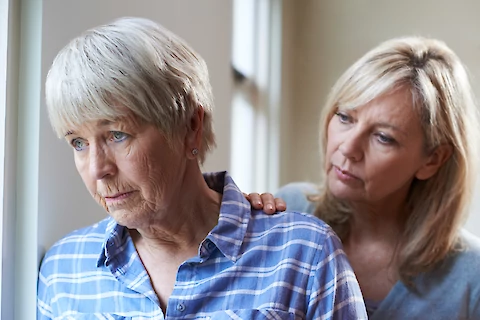
In honor of American Heart Month this February, we shine a spotlight on an issue that is pivotal yet often overlooked in cardiac health – the mental well-being post-heart attack. Heart attacks can be a life-altering event, especially for seniors, bringing forth not just physical but also significant emotional and mental changes.
The Effects of a Heart Attack on Seniors
A heart attack, medically known as a myocardial infarction, can be a physically challenging ordeal. It involves sudden blockage of the blood supply to a part of the heart, causing damage to the heart muscle. But beyond the physical repercussions, a heart attack can significantly disrupt a senior's daily routine. It can limit their mobility and independence, leading to feelings of frustration or helplessness. At the heart of these changes lies the concern of altered mental health, as the senior grapples with not only their physical recovery but also the emotional strain the event may have caused.
Mental Health Concerns Following a Mild Heart Attack
The term 'mild' heart attack can be deceptive. While it may indicate less severe physical damage to the heart, the mental health impact can be substantial. Seniors may experience a range of emotions, from fear and anxiety about having another heart attack to depression due to the perceived loss of health. They may also experience changes in their sleep patterns and appetite, isolation from social activities, or difficulty concentrating. Despite the heart attack being mild, the mental repercussions can be quite profound, requiring the same attention and care as physical recovery.
Major Changes in Routine and Mental Health
For seniors, a predictable routine brings comfort and a sense of control. However, a heart attack can disrupt this routine, necessitating modifications to their diet, exercise regime, and medication schedule. Such changes, while necessary for physical recovery, can be mentally distressing. Feelings of sadness, anger, or anxiety may arise as the senior deals with these alterations. The task for caregivers here is to provide emotional support, reassuring their loved ones that these changes are temporary and crucial for their health and longevity.
Importance of Mental Health Support for Seniors Post-Heart Attack
Addressing the mental health of seniors after a heart attack is as critical as taking care of their physical health. Caregivers can play an instrumental role in helping seniors navigate these emotional challenges. Providing a listening ear can make a significant difference, allowing seniors to express their fears and concerns. Encouraging regular physical activity within the advised limits can improve their mood and overall mental well-being. Before starting any new workout regimen or activity, just make sure to have a conversation with their doctor.
Ensuring they remain connected with their social circle can prevent feelings of isolation. Additionally, seeking professional mental health support, such as a counselor or therapist, can equip seniors with coping strategies and resilience during their recovery journey.
Senior Helpers Columbus North, OH, Supports Seniors and Their Caregivers
In the face of a heart attack, understanding and addressing mental health concerns is an imperative part of the recovery process for seniors. Caregivers, armed with knowledge, patience, and empathy, can aid in making this journey smoother and less formidable.
If you're a resident in Columbus, Delaware, Dublin, Hilliard, or Powell, seeking professional support for your loved one, look no further. Senior Helpers Columbus North, OH, is equipped with a team of professionals ready to assist with the specialized care your senior loved one needs during this crucial time. Contact us today.